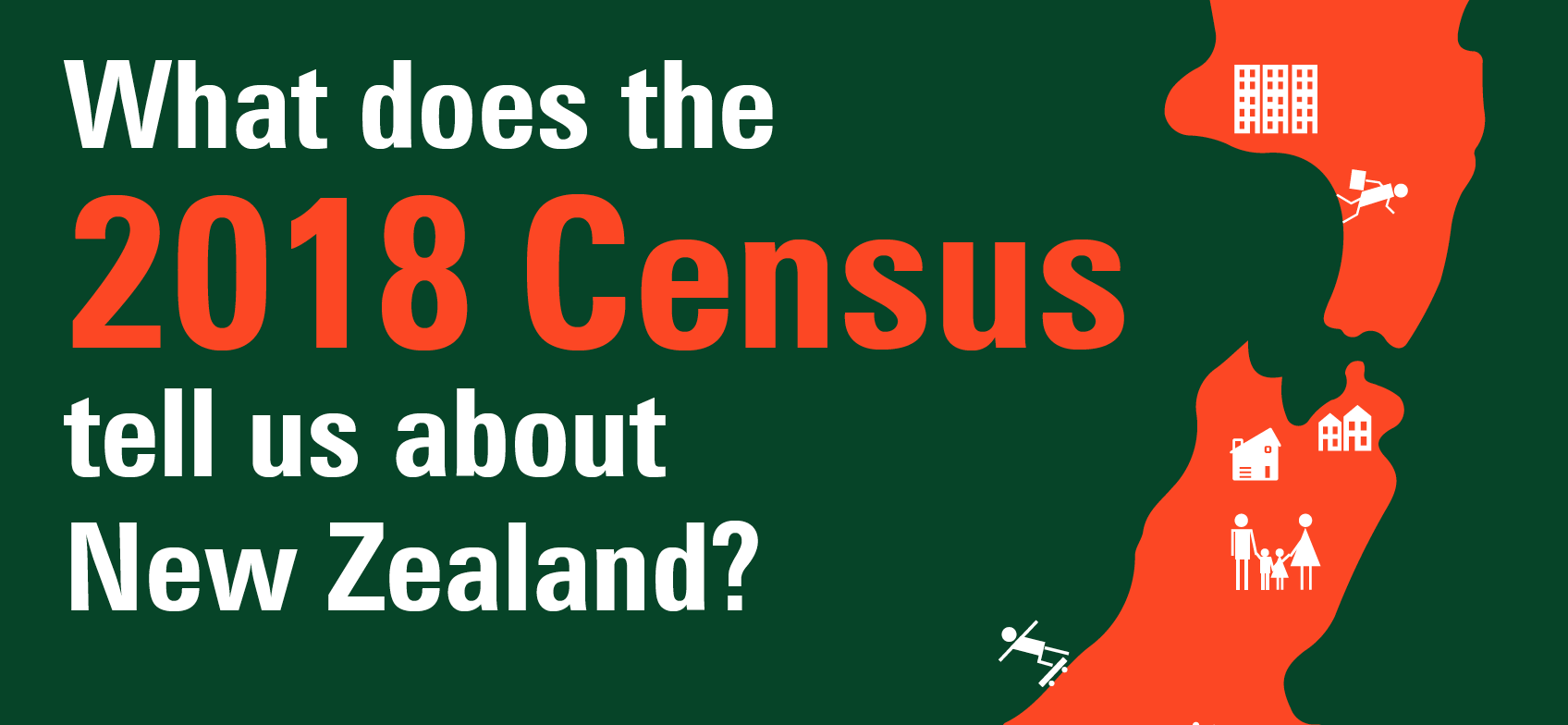In the 2013 census 37.5% of the Wellington population over the age of 15 had a tertiary degree. Compare that result against Queenstown in distant second place with 22%. Auckland lies third with 21.9%.*
My last blog highlighted the influence of large universities on the socio-demographic profile of two smaller cities – Palmerston North and Otago. However, I didn’t discuss the economic benefits in any detail. Economic gains have been at the forefront of the recent debate in Wellington where the council’s Long Term Plan was criticized for not considering the impact of the education sector.
Sir Neville Jordan, Chancellor of Victoria University in Wellington argues that one and a half billion dollars per year is injected into the regional economy by Victoria University, the Wellington Massey Campus, Whitireia and WelTec. Victoria University accounts for two thirds of that income.
So tertiary education is big business in Wellington and intuitively you would think that there would be a strong link between industry needs and education outcomes. Yet John Milford, the chief executive of the Wellington Employers’ Chamber of Commerce says that the regional business community reports skills shortages across a wide range of industries.
From these two perspectives, I was interested at what the socio-demographic characteristics of Wellington could add to the picture … because here’s the thing – Wellington has much higher proportion of people with a bachelor or higher degree than anywhere else in New Zealand.
In the 2013 census 37.5% of the Wellington population over the age of 15 had a tertiary degree. Coming in second and third were Queenstown with 22% and Auckland with 21.9%.*
The 2013 figures are the result of a massive upswing (from the 2006 census) where Wellington registered 10,737 more tertiary qualified people – an increase larger than the actual growth in the population (10,296) during the same period. The post-school qualifications category, which includes trade qualifications, registered a sizeable decrease so perhaps that finding starts to flesh out Milford’s comment.
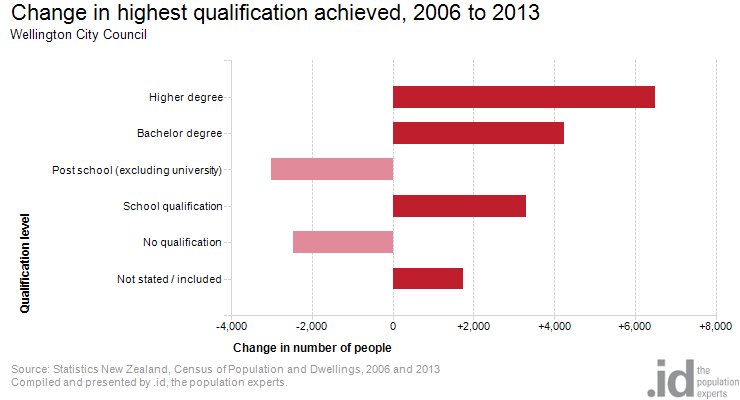
The surge of qualified workers was not limited to Wellington. Not one single territorial area in New Zealand experienced a decline, either in the proportion of those with a Bachelor or those with a Higher degree, between the last two censuses. In 2013, there were 601,308 people in New Zealand with a tertiary qualification.
Looking at the Wellington profile though, one would expect an industrial profile that accounts for, and attracts, such levels of highly educated people. Not surprisingly Professionals and Managers dominate the occupations listing, although the proportion of Managers in Wellington is lower than the national benchmark.
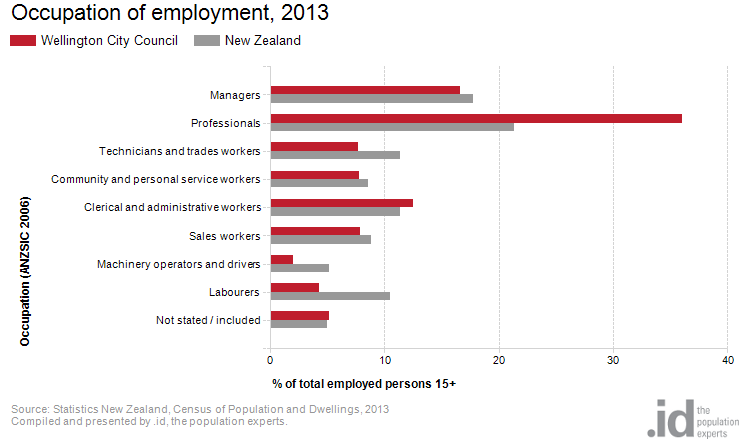
Wellington is an urban council so an absence of primary industry activity and the dominance of professional scientific and industrial services is not surprising. You can also spot government agency presence in the high proportion of Public Administration and safety jobs.
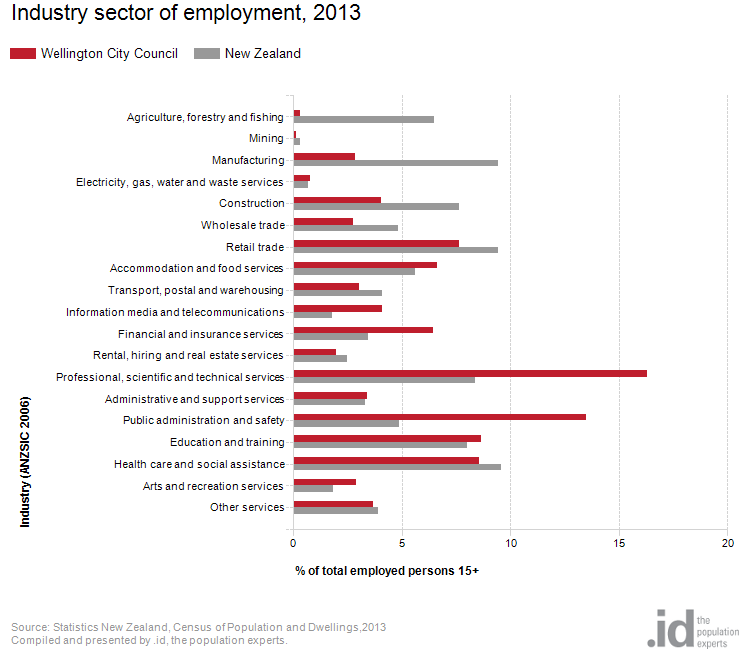
While society and culture qualifications dominate – these qualifications include political science, the humanities, welfare, law, philosophy, economics and sport and recreation. However, the surge between censuses of those with a creative arts background is notable. This classification includes performing and visual arts, graphic and design arts, and communications and media arts.

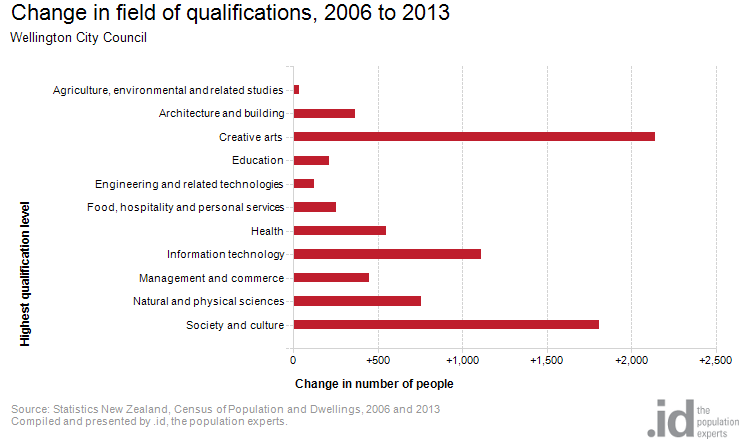
*Note: Percentages vary slightly from Stats NZs because .id includes “not stated” in calculations.









